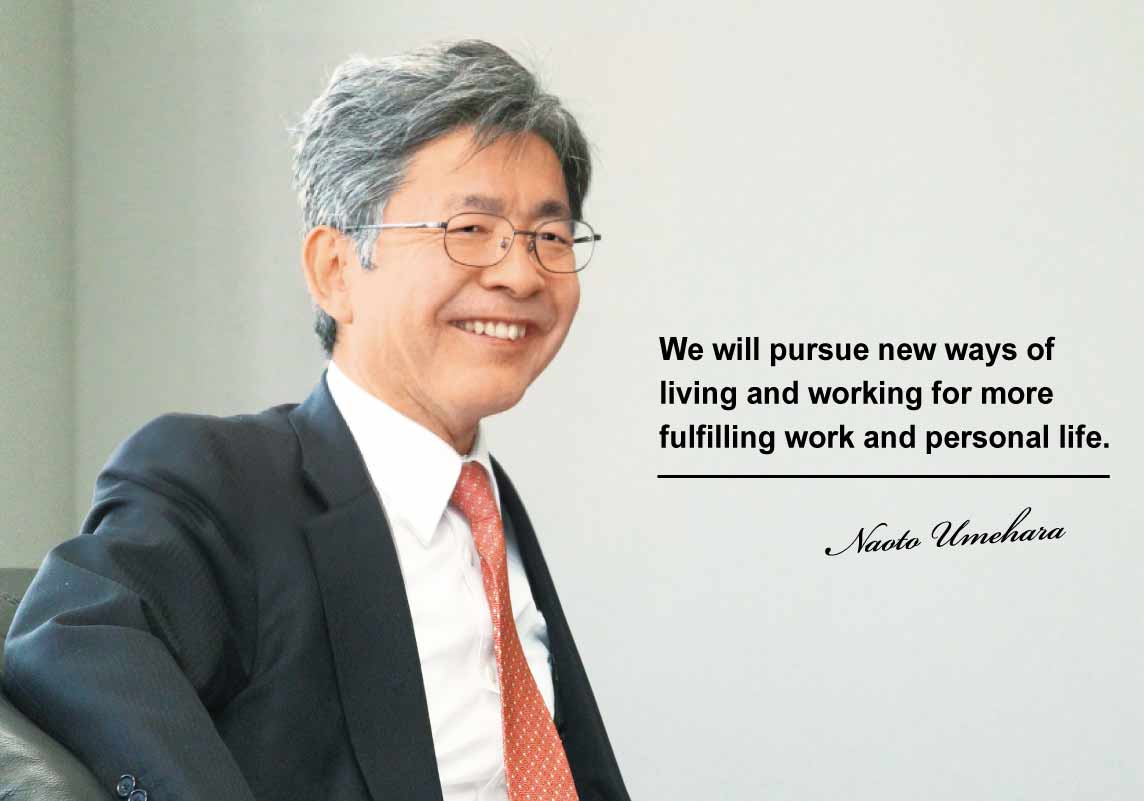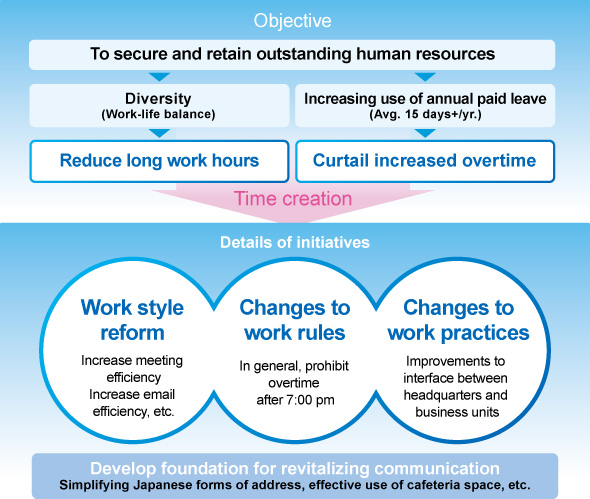Special Feature
Pursuing a vibrant and active workplace for all employees
Aiming for the dynamic engagement of all citizens, the Japanese government has begun promoting "work style reform." The policy promotes diverse working styles and aims to create new vitality in society. In step with this policy, the Kobe Steel Group is undertaking initiatives for work style reform for its staff. We report on the Kobe Steel Group's unique work reforms, including the purpose of these initiatives and reforms to daily work tasks through KOBELCO Way work practices from the perspective of our employees.

Naoto Umehara
Executive Vice President and Representative Director
In order to secure and retain outstanding human resources, the Kobe Steel Group has been focusing on encouraging the use of paid leave among employees, the promotion of a healthy work-life balance, and other measures to improve the work environment. In fiscal 2016 we began the full-fledged start of initiatives for work style reform for staff, which aims to create time for employees through more efficient work practices and to improve the use of that time by all employees.
Initiatives for work style reform comprise three core elements: changes to work styles, changes to employment rules, and changes to work practices. The biggest purpose of these initiatives is to provide employees with more fulfilling work lives and personal lives. We expect to achieve significant benefits from a management perspective through work style reform activities, including increased productivity, reduced overtime costs and the ability to better secure outstanding human resources. However, such benefits can only be gained by creating more employee-friendly working environments. For the Kobe Steel Group, our greatest asset is our people. Creating more fulfilling work lives and personal lives for each and every employee will become a source of better work performance, which in turn will create value from a management perspective.
When we revisited work practices previously taken for granted, it was easy to see how much time was being needlessly squandered. As part of our initiatives for work style reform, we established rules for the KOBELCO Way, taking thorough stock of misused time in areas such as our regular office meetings (where time was often being expended without reaching any definite conclusions) and the reading and writing of email (which accounts for 20-30 percent of time spent working). As a result we reduced the total time used for regular meetings by 169,000 hours, from 576,000 hours in fiscal 2015 to 407,000 hours in fiscal 2016.
We are pursuing a variety of measures to ensure that these new rules permeate throughout the company, including seminars and e-learning for all staff and through use of the company intranet. We are also engaged in companywide diversity promotion, including efforts to double the number of female employees, reduce the number of resignations on the part of female career-track employees with 15 or more years with the company by half, and encourage the use of special childcare leave by male employees with children less than one year old.
Japan’s achieved economic power through a period of high growth and an economic bubble, with mass production and mass consumption supported through long hours of overtime. In contrast, the focus now is on planning, ideas and solution capabilities. Personal free time is now a necessity in order to build the knowledge to create new value.
Under our initiatives for work style reform, we believe providing rewarding work to a diverse range of employees is a critical driving factor for the Kobe Steel Group to evolve from merely manufacturing to value creation. In that light, a certain degree of latitude is required. Rather than adhere to overly entrenched rules, we believe that improving the work environment so that it can flexibly respond to changing conditions will lead to success.
Overview of Initiatives for Work Style Reform for Staff
